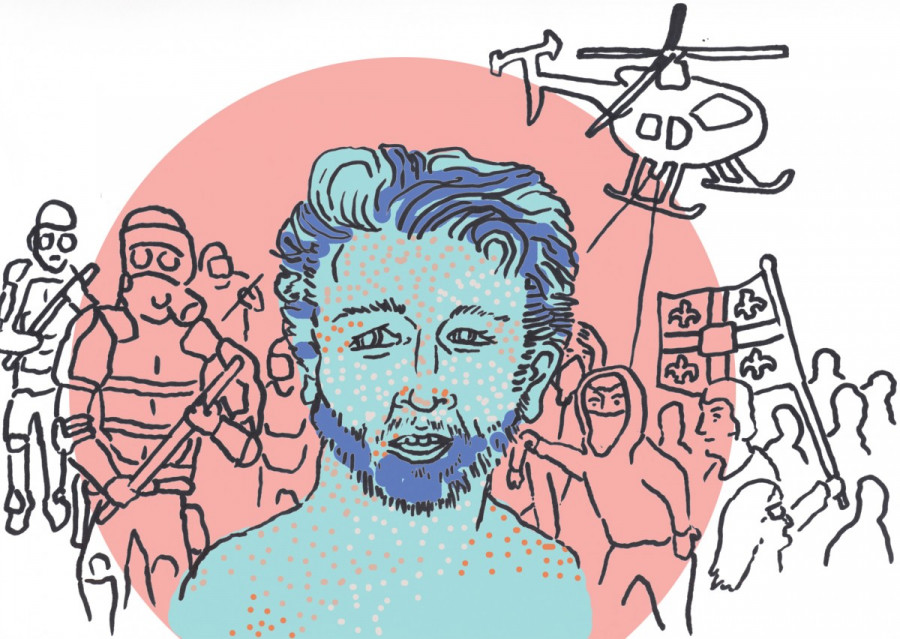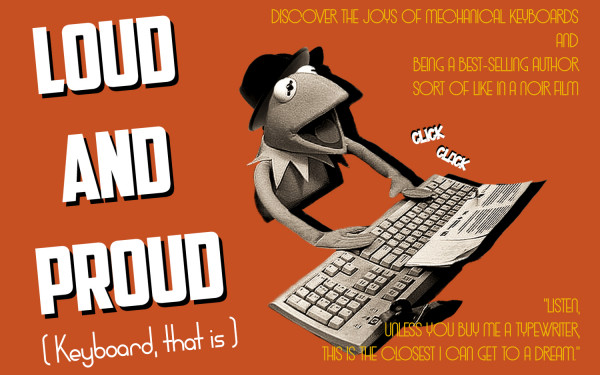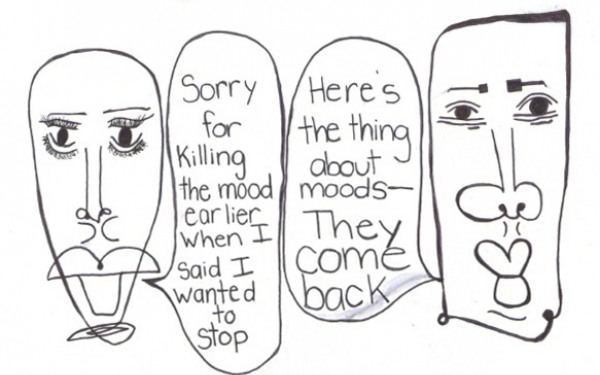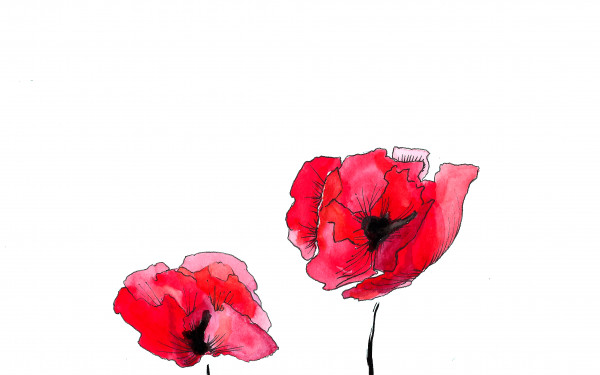Protests and Perceptions
Reflections on the 2012 Quebec Student Protests
Four years ago, the largest and longest student strike in the history of Quebec was just getting started.
The strike, which began as a student movement against former Quebec premier Jean Charest’s proposed 75 per cent tuition increase, would later metastasize into one of the largest social revolts this province has ever seen. It would eventually bring down the Charest government—an idea that was unthinkable in the beginning. It was a reminder of the power people can exert when we work together.
It was a time that fundamentally changed the way I see the world. I wasn’t a student at the time. I took some years off after high school and was working at a dingy call centre in downtown Montreal.
Every day was a grind. My job sucked, and I knew it. I felt like I was stuck there, as if I just had to accept that this was what people did with their lives: work, spend, repeat. Maybe I could get a somewhat better job eventually, but that was the pattern, and there was no escaping it.
But then, something shook that mould. When I would get off work, sometimes I would see demonstrations going by, or police rushing on bikes or in cars to the scene of the latest protest.
It was exciting. I couldn’t put my finger on it at the time, but it felt like something was changing. I didn’t even really know what the protests were about, but I liked the fact that something was happening.
I started reading the news more often, something I hadn’t done in a long time. I followed the strike with reports from the Montreal Gazette and CTV. I saw lots of stories that either implied, or explicitly stated, that the students in the streets were spoiled brats, that they were violent, that they should go back to class. I took this commentary at face value. The reporters were surely being objective, right? I knew I liked what was going on in the streets, but maybe I was wrong. I was conflicted.
As time went on, my curiosity started to get the better of me. Sometimes, as I walked to the bus station, I would see protests happening. One day I decided to join in. I remember being nervous, I remember being excited. I remember the feeling of being inside a seemingly endless sea of people, the feeling that we were actually doing something.
We were breaking out of the predetermined roles that we were brought up to play in the world. What we were doing mattered.
I started attending demonstrations whenever I got the chance. In my broken French, I started learning—and butchering—the slogans that people were chanting. I loved it. I met people, I learned about the movement. I learned about other movements that were happening all over the world—in Greece, Chile, Spain and more. I learned about the Arab Spring and the Occupy movement.
I placed what we were doing into a global context, into a story about people all over the world rising up against the systems that dominated their lives, trying to change their worlds.
The way I saw police changed over those months. For the first time, I saw police violence unfold right before my eyes.
I remember one night, sometime over the summer, when the police attacked and scattered a demonstration. Downtown turned into a war zone, with heavily armed riot police chasing demonstrators around and attacking people—including pepper spraying a random tourist who was leaving a restaurant. Protesters were beaten down and left in the street. Only other demonstrators provided support for the wounded. Police laughed and went on their way.
My impression of the media began to change as well. I began to see biases in much of the media that I had previously been blind to. When I turned on the news later that summer night, the report was much of the same media spin on events—violent students attacking helpless police, the reporter said.
I had seen otherwise. The contradiction between what I saw and what was reported was too large to ignore.
Many things changed over the months of that strike. For me, and countless others, when the mundanity that froze over the world began to crack and thaw.
It was a time when we remembered that, with struggle and collective action, we could change the world around us. It was a cathartic moment where horizons widened and anything seemed possible. It was a moment where we reclaimed our futures, in the streets.
As things calmed down following the strike, it was easy to think of it as a one-off event. But the underlying causes of the unrest were never fixed, even though the tuition increase was cancelled. As austerity accelerates, the population is increasingly restless.
The next Maple Spring may not be so far away.
All it takes is a spark.






_600_375_s_c1.png)